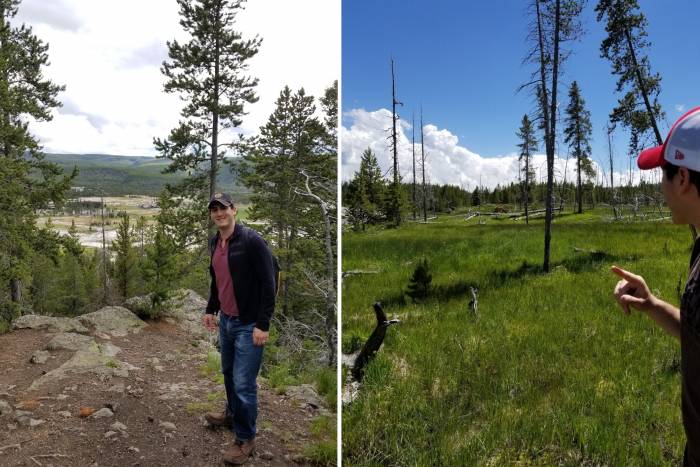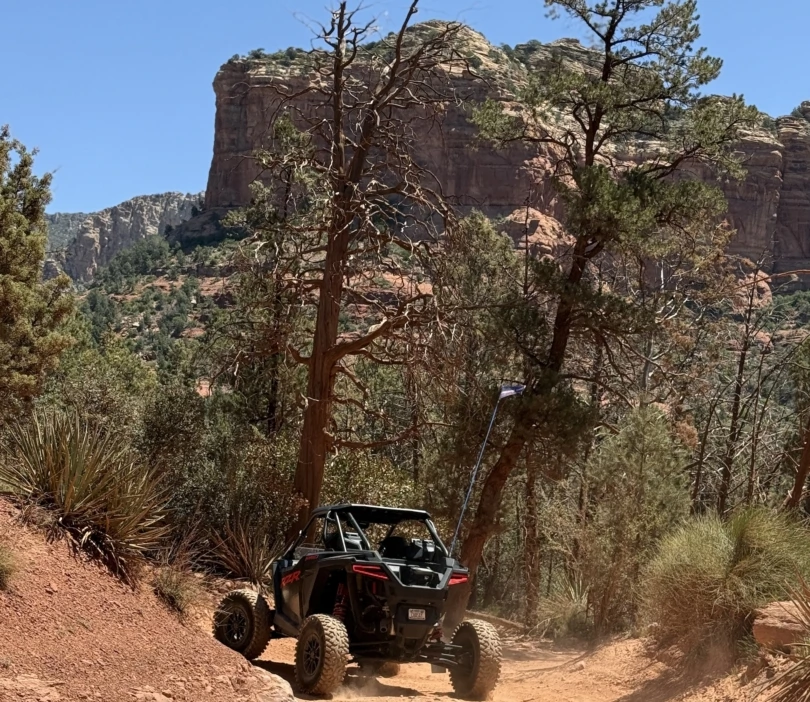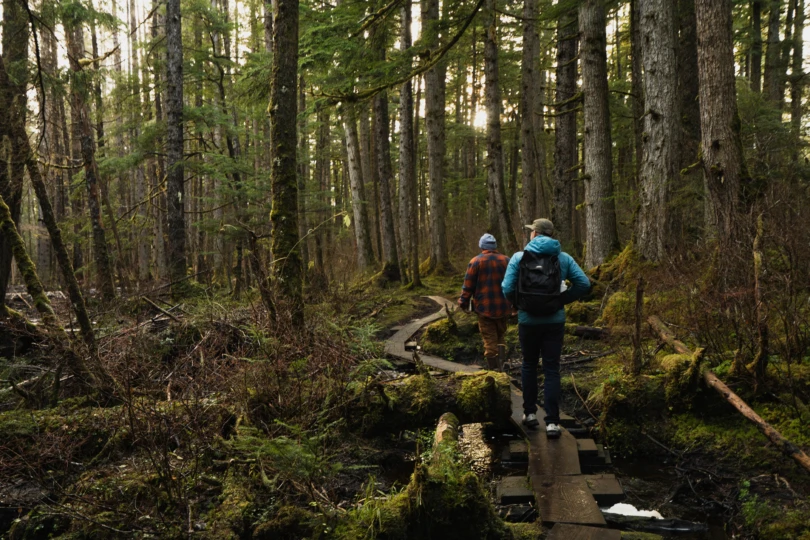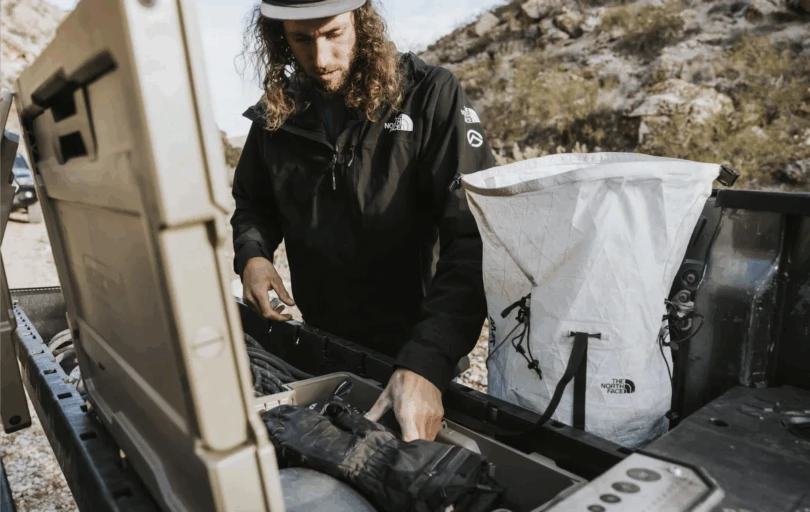Journalist and amateur treasure seeker Daniel Barbarisi tells us what he learned from the search for Forrest Fenn’s treasure and what it was like to hold it in his hands.
For a little more than a decade, hundreds of thousands of people searched for a box of gold, jewelry, and rare coins hidden by the eccentric art dealer Forrest Fenn. In 2020, Fenn simply announced that the treasure had been found yet gave no details about its location or its finder.
Just as many were certain they knew the location, online skeptics filled the void of information with conspiracy theories: There was never a treasure, or Fenn wanted to give it away before he died.
It was not until after Fenn’s death in September 2020 that Jack Stuef posted an anonymous blog post about the find. Journalist Daniel Barbarisi, author of “Chasing the Thrill: Obsession, Death, and Glory in America’s Most Extraordinary Treasure Hunt,” convinced Stuef to reveal his identity and he agreed.
Barbarisi himself had spent months searching for the treasure himself. And, as he’ll happily state, he was nowhere close.
You already know that the treasure was found, so the book spends most of its time exploring the drive and conviction behind its hunters over the last 4 years of the search.
As personalities clash, deaths come to light, and popular theories fall out of favor, several people find themselves changed by the hunt in ways they wouldn’t have expected for better or for worse.
As you read, you’ll laugh at misadventures, find relief when the treasure is found, and still have questions.
What Was Fenn’s Treasure?
Fenn teased the treasure’s location in his 2010 memoir “The Thrill of the Chase.” In particular, a 24-line poem was used as the only information needed to discover the box left unburied in the Rocky Mountains.
Scores of treasure seekers would scour his book, television interviews, and other materials for added meaning to those clues. Five deaths are attributed to the search.
From there, online forums and YouTube channels would grow and change over time with new theories, field reports, and finger-pointing. Barbarisi explored that ethos and went afield with several of the characters involved in the search, which became the basis for his book.

Hardcover $28, 368 pages, published by Knopf.
Treasure Hunted: The Truth Behind the Great Fenn Fortune
What was your initial theory from reading about the treasure, the years-long hunt, and the poem itself?
Dan Barbarisi: I came to the chase in early 2017 when my hunting partner Jay Raynor, aka Beep, brought it up. At that time, it had been going on for 7 years and I had not heard of it. Right away I just followed him around and felt like it was a good chance to chronicle him. And if I follow it a little too far down the rabbit hole, that’s cool because it’s fun.
Initially, I really did think it was going to be in New Mexico. When Fenn put out his book, he wasn’t thinking it would get so big. In his book, he wrote the “mountains north of Santa Fe” and a lark for a smaller audience, not a nationwide hunt. Fenn later came out and said it’s in the Rockies and my hypothesis was that he didn’t want this to end too fast and he’d expanded the area to four states.
How did you juggle being a journalist parsing the fact from fiction, while also searching for the treasure?
I was doing a dual-purpose thing. I was trying to chronicle the hunt and also trying to be a treasure hunter. In terms of covering the hunt, I’d like to think I was mostly rational, but there were times I fell into some conspiracy theory-type things. In terms of being a treasure hunter, you get a little less rational.
The things that seem crazy when you start seem normal a year or two into it. Once you’ve spent a lot of time poking down the drier holes, the weirder stuff stops seeming weird.
Looking back, what was your dumbest moment?
Me personally, I was never a good treasure hunter. I was a little bit too standard. A lot of my solves got two steps in and there really wasn’t much else. There was this one instance where another hunter and I were down in Bear Canyon in New Mexico. It was at least good because nobody was looking there. But nobody was looking there, because it wasn’t very good.
You find one or two things that make you think this may be a workable area. Then you get out there in the wilderness and realize you have two ideas, you need nine, and you’re basically just out for a walk. You can start to feel really stupid then. It’s that concept of “a little knowledge is a dangerous thing.”
What were some of the pitfalls in searching for the correct area?
A lot of the trouble people ran into was searching at the wrong time of the year. Fenn’s advice was to stick to the search seasons, but that varies from New Mexico to Wyoming. For the most part, we stayed away from anything too dangerous.
Our danger was messing up the environment around us, not our safety, except for getting too close to a bear one time.
After the announcement of the discovery, commenters were quick to cry hoax. Why did sentiment among some hunters and the public at large turn against Fenn so harshly?
After the announcement in June 2020, there were maybe two days of people being excited, and then when it was clear they weren’t going to get a full explanation out of Fenn, it turned in a hurry. It was almost universal condemnation.
Ten days later, [Fenn] released some photos, and that helped some. It was still a trickle of information. Then, in July, it came out that it was found in Wyoming.
Through the time to Fenn’s death, I think a lot of people, myself included, felt like we weren’t getting the full story. Either he ended it himself or something else is going on. Until the finder revealed himself in late September 2020, I was 50-50 on the whole thing.
I knew some other stuff and not saying there was anything nefarious, but assumed other things were going on. I understand how, in the absence of information, people fill that void in with theories.
You write that Stuef was within 200 yards on his first search and came across a fake blaze marker. Others were pretty close to the treasure too?
You would think so. The fake blaze thing he hasn’t quite figured out and I haven’t either. It’s strange but yes, it seems like something that very much colored [Stuef’s] hunt.
And yes, in theory, somebody else roughly figured out the general area and couldn’t find the thing. I guess he put something up to tease others that would have gotten close. I don’t have a logical explanation for it.
It clearly impacted [Stuef] in a major way. He was heavily influenced by it and from that point forward, didn’t want to believe in anything until he was certain he’d found the treasure.
The search really took a toll on some hunters — even the finder felt more relief than celebration upon his discovery.
The number of people who go to the point that they were “neglecting their home lives” was pretty rare. They were sure they had it and clouded out logical thinking. In terms of looking at that as a concept, you have to look at why people search for this thing. It’s not about the money. That’s the reason or excuse to search for it, but not the why.
The people who were searching for the chest wanted to be right. They wanted that validation in their life. In many cases, they were people who felt like they were underappreciated or have not gotten their due in life.
Finding this thing, achieving this will prove every naysayer wrong. And that can be a very hard feeling to shake, and then comes some mania with that who feel more urgency in their need to find it.
What did you learn about the line between the search being a hobby and an obsession?
The online community plays a part in that. Once you become part of the thing, you can get sucked in. And you get caught up in a lot of the drama, hanging on Fenn’s every word. Most of [the puzzle] is clouds looking like horses.
I have spoken to so many who felt like Fenn gave them some personal message or clue. That’s what sets this hunt apart from the treasure hunts of yore. You have the ability to speak to the person who created the hunt. There was a feeling that you could get close to him, and that’s incredibly tantalizing to people.
Did you come across hunters who simply enjoyed the search as an excuse to be outdoors?
Absolutely, especially with long-time hunters. I think they accepted this is what I do and they weren’t expecting to find it. That was a healthy way to approach it. Others just wanted to escape the hunt and return to enjoying the outdoors without thinking about it.
Do you think Fenn lost control of his own treasure?
Yes. I don’t think he anticipated that people would be dying. Once there was one death, I don’t think he ever thought there would be five. He didn’t see the life that this would take on, and I can’t blame him for that. Once it was a phenomenon, it was too late.
When it did happen, he was in it. And he made the most of it. Let’s be clear, he took the attention. But I actually don’t think he expected it to get to the situation it became.
The hunt seemed to have grown into something too big, and beyond Fenn’s control.
We’d have to define “too big,” but right around the time I was getting into it was when there were three deaths in a month. I was honestly surprised it survived that. If everyone knew about those deaths in the time as they happened, as opposed to the information trickling out over six months, I think it would have been shut down in 2017.
After that, it was just going to be this big crazy treasure hunt where people were going to die. Once it morphed into that, I think Fenn had recognized that, for better or for worse, it was his thing and nothing was going to take this away from him and he took that personally.
Overall, he saw it as a force for good and wanted to protect it. Even if it made them do crazy and sometimes dangerous things. It was the very definition of an attractive noose.
Walking in remote areas is inherently dangerous, but how preventable were the deaths associated with the hunt? Could Fenn have come out with more guidelines or clues earlier and saved lives?
Yes, but most of the time when people are walking in a remote area, there isn’t the feeling of, “I have to get over that next hill because …” But when you give them a carrot to chase and they convince themselves it’s over that next hill, then they do things they wouldn’t do otherwise. There’s pressure involved.
Is that where the line is?
That’s definitely one of the lines. There’s more than one you can cross, where you’re feeling the self-hate and self-loathing of not finding it. There are costs to it, and maybe you’re doing things you shouldn’t do to justify that.
What did the search teach you about yourself?
It taught me that I am as gullible as everyone else. I can fall victim to theories and wanting to believe just as much as everyone else. Even when I’m theoretically detached and floating above it all, I’m not. There’s a lot of lure to that treasure box.
What was it like to hold the treasure box?
When you’re holding a treasure in your hands, it’s the coolest thing in the world. It feels like you a part of something so much bigger than yourself. The nuggets, the gold coins, the ancient artifacts are cool on their face.
But the sense of it altogether as a treasure that everyone searched for and you yourself searched for — it’s a little overwhelming. It was not a disappointment at all.
Fenn assembled a worldly treasure. Do you think treasure should be its own exhibit?
That would be great. This thing has intrinsic value and it’s part of a bigger story with a lot of parts. I think a lot of people would come to see it, and it would give a lot of closure to a lot of people.
Fenn really did curate the box. These things held meaning. And you can feel that when you’re looking through it.
Even after reading the book, there are still a few unresolved questions. One of which is the autobiography inside the chest. Why the secrecy there?
I don’t know. I have seen it, but I haven’t read it. And I wasn’t allowed to open it. As far as other things, some things will come out over time, but nothing revelatory in the sense that it changes everything.
But, look, there are things I don’t know as well. The story isn’t quite over.
Daniel Barbarisi is the author of Dueling with Kings. He is currently a Senior Editor at The Athletic, after years as a reporter at The Wall Street Journal and The Providence Journal. He resides with his wife and two sons outside Boston, Massachusetts.









